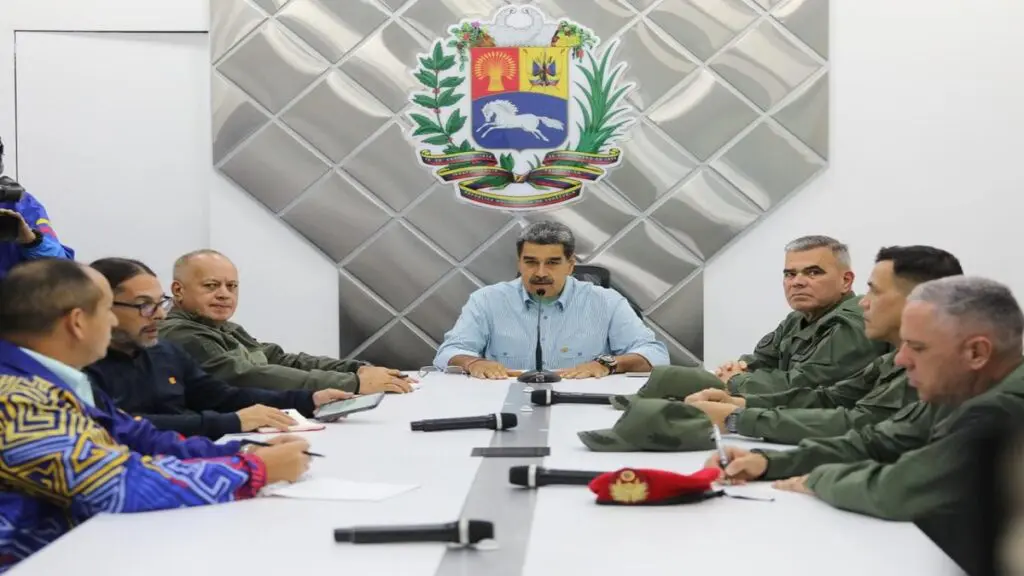
Since the early hours of Friday, Venezuelan authorities made important decisions for the recovery of the electrical system and productive activities. Photo: Presidential Press
Caracas, August 31 (RHC)-- Power has returned to most areas of Venezuela after a nationwide outage that Caracas blames on sabotage of the national electrical grid by the US-backed opposition, as the oil-rich South American country is still reeling from crimes and violence that erupted following the July 28th presidential election.
Authorities said the massive outage, which affected 24 states, commenced just before dawn on Friday, but by late afternoon, reports said that power was beginning to return to parts of the capital Caracas, the southwestern state of Tachira, and western Merida. In other parts of the country power was intermittent or remained off.
President Nicolas Maduro, who emerged victorious in last month’s presidential election and whose victory was ratified by Venezuela’s Supreme Justice Tribunal on August 22, said the blackout was the result of attacks on the Guri Reservoir, Venezuela’s largest hydroelectric project, by the opposition, which has led violent protest rallies to challenge his victory.
“This is an attack full of vengeance, full of hatred, coming from fascist currents relying on political sectors pretending to be the political opposition,” Maduro said on television on Friday evening, accusing the United States of being involved in the outage.
“I won’t say more because it is being investigated,” Maduro further said, adding that it was an attack of significant magnitude, focused on transmission lines.
Venezuela experienced national blackouts in 2019, some of which lasted for up to three days, and Caracas at the time blamed those power outages on attacks against the network and the Guri Reservoir by saboteurs and opponents of Maduro’s government.
“We are normalizing, regularizing, step-by-step... We are better prepared and in better conditions than in 2019,” Maduro said.
Early Friday morning, Freddy Nanez, the minister of communication and information, said on state television that all 24 states in the country experienced either a complete or partial loss of electricity, blaming the outage on “sabotage.”
The blackout disrupted operations at Venezuela’s state oil company PDVSA, including its main terminal, Jose, where vessel loading and unloading were halted. Additionally, Petropiar, a crucial oil upgrader for exportable crude, was affected. Jose handles around 70 percent of the country’s oil exports and lacks an independent power supply.
Most of Chevron’s Venezuelan crude is exported via Petropiar. However, PDVSA’s largest refining complex, Paraguana, remained unaffected due to its operational power plant, and the impact on the Orinoco Belt was minimal as many operations have their own generators.
Maduro has urged the country’s authorities to use an “iron fist” to end crimes and violence that erupted after his re-election in July.
Gonzalez Urrutia, a 74-year-old retired diplomat, had replaced opposition leader Maria Corina Machado after she was barred by a court from running for president over fraud.
Maduro said the two were encouraging a “coup d’etat” against him and fomenting a “civil war situation,” which he said, had been neutralized.
Urrutia’s claim to victory has been recognized by the U.S. and several Latin American countries, including Argentina, Uruguay and Peru.
Venezuela has been suffering from harsh sanctions for years, imposed on the country by the United States, and is struggling with severe economic issues, including hyperinflation.

